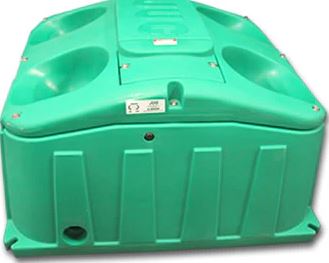
Every farmer knows that water is life for livestock. Without a proper water supply, animals can become dehydrated, stressed, and less productive. That’s why livestock waterers are such an important investment for any farm. In addition, with rising utility costs and environmental concerns, many farmers are now exploring energy efficient waterers to reduce expenses and improve sustainability. In this guide, we’ll look at everything you need to know about choosing, maintaining, and getting the most out of livestock waterers.
Why Livestock Waterers Are Essential for Your Farm
Water is just as important as feed when it comes to animal health. Livestock that don’t have easy access to clean water can face serious health issues, reduced weight gain, and even reproductive problems. Using livestock waterers ensures your animals always have a fresh supply of water, no matter the season. This is especially important during hot summers when dehydration risks are high. Farmers who add these systems to their farms often see improved growth rates and overall animal well-being. When paired with modern options like energy efficient waterers, you also cut down on operational costs.
Types of Livestock Waterers You Can Use
There are different styles of waterers available, and the right choice depends on your farm’s needs. Some common options include automatic waterers, which refill as animals drink, ensuring constant access to fresh water. Others rely on gravity-fed systems, which are simple but require monitoring. Insulated waterers are useful for cold climates, as they prevent freezing during winter. For farmers focused on sustainability, energy efficient waterers with heating elements that consume less electricity are a smart investment. Each type has its pros and cons, so consider your climate, herd size, and budget before deciding.
How Energy Efficient Waterers Can Save You Money
Running a farm comes with many expenses, and energy bills can add up quickly—especially if you need heated water in winter. Energy efficient waterers are designed to minimize power consumption while keeping water at the right temperature. They often use insulation, thermostatic controls, or solar energy to reduce energy waste. While these models might cost more upfront, they pay for themselves over time through reduced electricity bills. Plus, they contribute to a greener farming operation, which benefits the environment and aligns with sustainable agriculture practices.
Key Features to Look for in Livestock Waterers
When choosing a livestock waterer, durability should be at the top of your list. Animals can be rough on equipment, so look for models made of strong materials that can handle everyday use. Easy cleaning is another important factor because stagnant water can lead to bacteria growth. Some waterers come with removable parts for quick maintenance, which makes life easier for farmers. If you live in a cold region, consider insulated designs or energy efficient waterers to keep water from freezing. The right combination of features will keep your animals healthy and your farm running smoothly.
Installing Livestock Waterers the Right Way
Proper installation is essential for getting the most out of your waterers. Place them in areas that are easily accessible to animals but not in spots where they could get muddy or contaminated by manure. Good drainage is crucial to avoid standing water, which can become a breeding ground for bacteria. For farms with multiple paddocks, installing waterers in central locations can save time and effort. If you’re using heated or energy efficient waterers, make sure they are connected to a reliable power source or solar setup. A well-planned installation ensures convenience and hygiene.
Common Problems and How to Prevent Them
Even the best livestock waterers need attention from time to time. One common issue is algae growth, which can make water unappealing and unsafe for animals. Regular cleaning solves this problem. Freezing in winter is another challenge, but using energy efficient waterers with proper insulation can prevent ice from forming. Leaks and worn-out valves are also common, so regular checks and maintenance are essential. By addressing these issues early, you can avoid costly repairs and keep your livestock healthy year-round.
Why Maintenance Matters for Livestock Waterers
Maintenance isn’t just about extending the life of your equipment—it’s about protecting your animals’ health. Dirty or broken waterers can lead to disease and stress in livestock. Make it a routine to inspect waterers daily, clean them regularly, and fix any leaks promptly. Energy efficient waterers often require less maintenance because of their advanced design, but they still need occasional checks to ensure everything is working correctly. A few minutes of care can save you from major headaches down the road.
How to Choose the Right Size for Your Herd
When selecting livestock waterers, it’s important to consider the size of your herd. A small waterer won’t be enough for a large group of animals, leading to competition and stress. On the other hand, an oversized waterer for a small herd can result in stagnant water, which encourages bacteria growth. Look for models that match your herd size and provide constant fresh water. Many farmers also prefer automatic refill systems, as they ensure there’s always enough water without constant supervision.
The Future of Livestock Waterers
Technology is transforming farming, and livestock waterers are no exception. Smart waterers with sensors can monitor water levels, temperature, and even detect contamination. Some models connect to mobile apps, allowing farmers to check water status remotely. Energy efficient waterers are becoming more advanced with features like solar panels and better insulation, making them perfect for sustainable farming. As these innovations become more affordable, every farm will have the opportunity to improve water management while saving time and energy.
Conclusion
Investing in the right livestock waterers is one of the best decisions you can make for your farm. These systems ensure your animals have constant access to clean, fresh water, which is vital for health and productivity. With the addition of energy efficient waterers, you can also reduce costs and contribute to a more sustainable future. From choosing the right type to proper installation and maintenance, every step matters in creating a reliable watering system. A little planning today means healthier livestock and a more efficient farm tomorrow.

